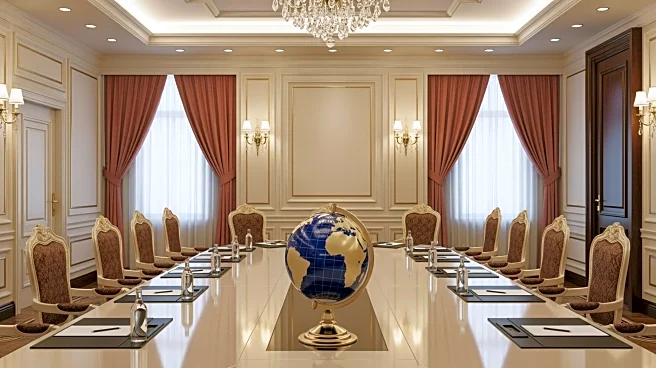What's Happening?
President Donald Trump is hosting leaders from five Central Asian nations at the White House as part of efforts to counter the influence of China and Russia in the region. The meeting is part of the C5+1
platform, which includes Kazakhstan, Kyrgyzstan, Tajikistan, Turkmenistan, and Uzbekistan. The U.S. aims to secure critical minerals and energy supplies while establishing new trade routes that bypass geopolitical rivals. A memorandum of cooperation on critical minerals was signed between U.S. and Kazakh representatives, highlighting the strategic importance of the region's resources.
Why It's Important?
This diplomatic engagement underscores the U.S.'s strategic interest in Central Asia, a region rich in minerals and energy resources. By strengthening ties with these nations, the U.S. seeks to diversify its supply chains and reduce dependency on China and Russia for critical minerals. This move could enhance U.S. energy security and support the transition to greener energy sources. The initiative also reflects broader geopolitical dynamics, as the U.S. competes with China and Russia for influence in resource-rich regions. Successful partnerships could bolster U.S. economic and security interests.
What's Next?
The U.S. is likely to pursue further government-to-government engagements and commercial deals to solidify its presence in Central Asia. This may involve additional agreements on resource extraction and infrastructure development. The outcomes of these meetings could influence future U.S. foreign policy and economic strategies in the region. Observers will watch for reactions from China and Russia, as they may respond with their own diplomatic or economic initiatives to maintain influence. The success of these efforts could shape the geopolitical landscape in Central Asia for years to come.










